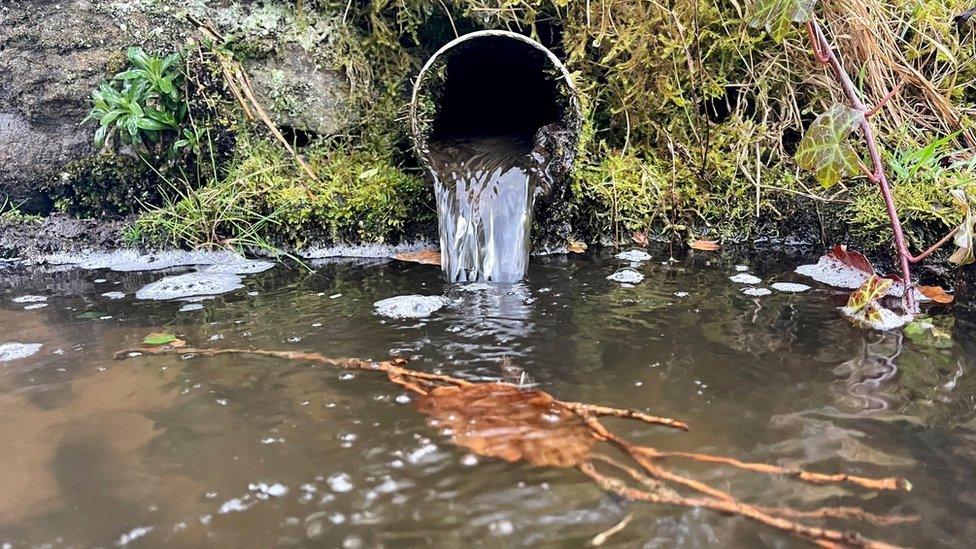River Wye: Concerns over pollution in Wales' rivers
- Published
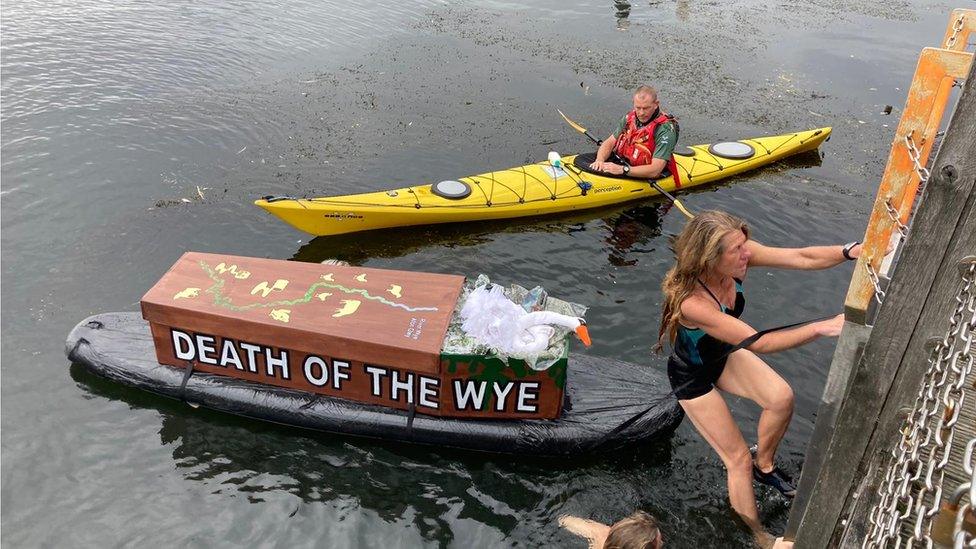
Angela Jones, known as the "Wild Woman of the Wye" has campaigned against pollution of the river Wye for years
2022 is the last year to act to save the river Wye, according to an environmental campaigner.
Angela Jones has been at the forefront of campaign against the Wye's pollution.
Concerns have been expressed about the poor state of many of Wales' rivers and the impact of some methods of farming and sewage disposal.
Natural Resources Wales said while significant issues remain, they have made "great strides" in recent years.
Angela has lived and worked on the river for decades and in recent years she has noticed an increase in pollution in the water and a rapid decline in species, like salmon and river crowfoot. She said watching it die is "painful."
'Cliff-edge'
Also know as the "Wild Woman of the Wye", Angela said: "My heart pains because we've been totally let down by the agencies supposed to protect it.
"We are on a cliff-edge now with the Wye where I really and truly feel that 2022 is our last year to make it change."

Angela took her protest the Senedd in Cardiff in 2021
Environment Agency modelling suggests the sources of pollution in the Wye come predominantly from agriculture (64%) and sewage (28%).
River Action and other campaign groups link the ecological damage to run-off from major intensive poultry farms.
They believe high phosphate levels from excrement causes algae to bloom and choke out other plants and animals.
Decades to fix problems
Steve Ormerod, an ecology professor at Cardiff University and Natural Resources Wales board member, said wide-scale changes would need to be made to address the complex causes of pollution in Welsh rivers.
However he pointed to the recovery of rivers from heavy industry from the 70s and said while it was possible it would take time.
"We're looking at years to decades to address what have become extensive, wide-scale, long-term developing problems, which is now quite expensive for us to fix."
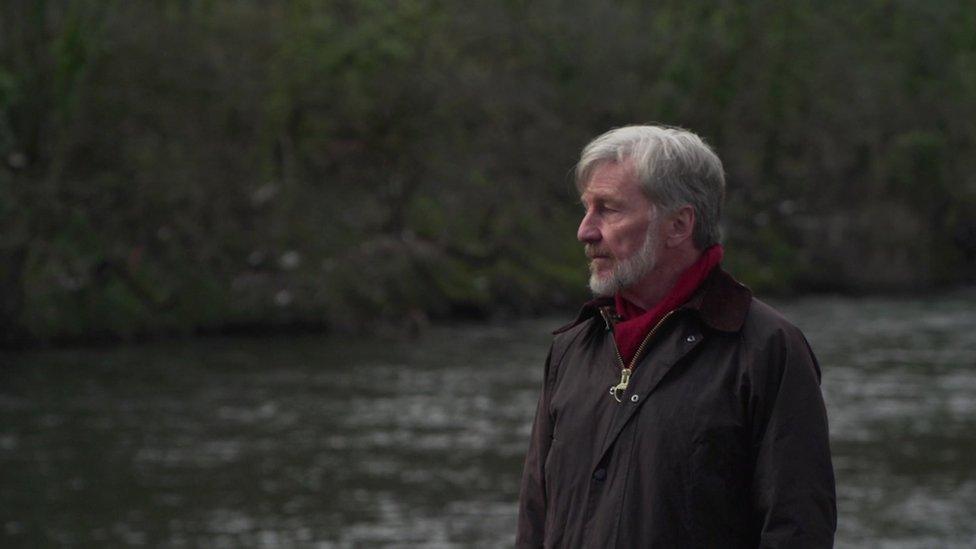
Prof Ormerod said the issue of pollution in Welsh rivers is a "complex" one
The 155 mile-long Wye river weaves in and out of Wales and England and in some parts acts as the border between the two countries.
Natural Resources Wales is in charge of regulating Welsh waterways, while the Environment Agency does so for England.
According to Nick Measham, of Salmon and Trout Conservation, this means it is harder to hold them to account.
They have joined another charity, Fish Legal, to commence legal processes under Environmental Damage regulations to make both bodies acknowledge the impact of poultry farming.
"It's great that we've got groups of people who, whether in England or in Wales, are putting pressure on these two agencies to actually work together to fix the problem," Nick said.
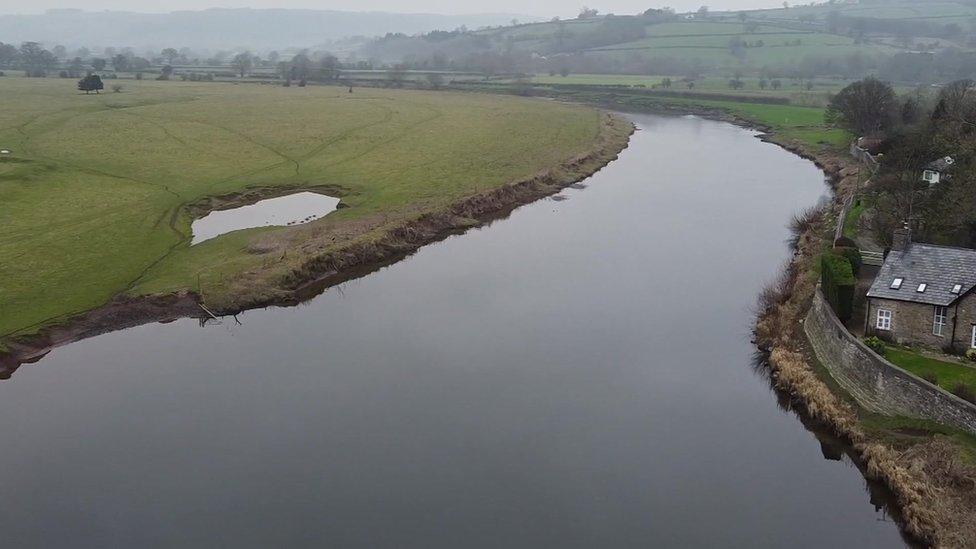
The second largest polluter in the Wye is untreated human sewage
The Environment Agency said "permanent investment" for regulatory activity on the Wye was now in place and they would be "increasing farm visits, focusing on high-risk locations and previously non-compliant businesses."
They said they would "also be carrying out a detailed investigation into the management of poultry manure across the catchment."
Human sewage
The second largest polluter in the Wye is untreated human sewage, which is disposed of when water treatment works are close to capacity.
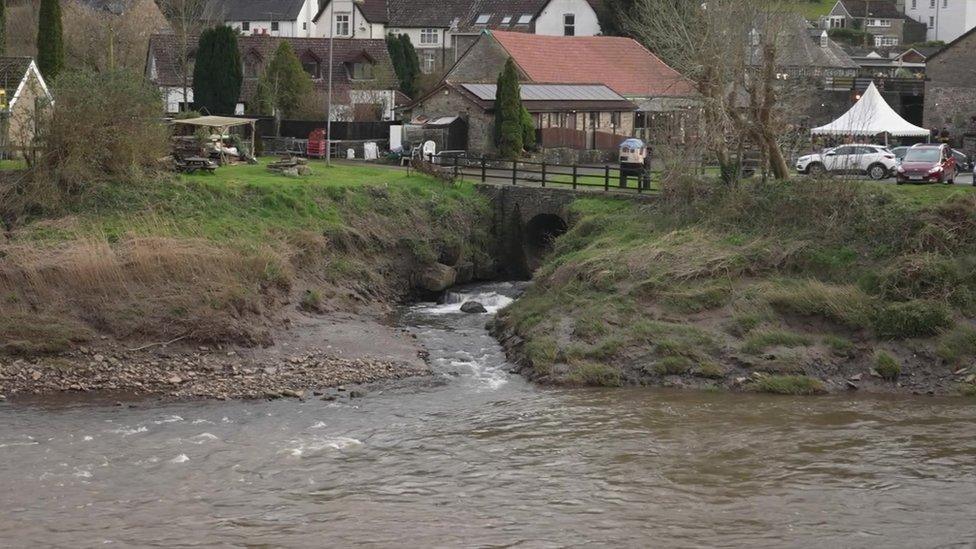
Welsh Water were one of the worst companies for disposing of sewage, according to the BBC's Panorama
There were 105,000 recorded sewage spills in Wales in 2020 according to a recent Senedd report.
But it predicted the real number was much higher, as not all spills were recorded by monitors, or were legal.
Welsh Water estimates the total cost of removing storm overflows from sewers would cost between £9-14 billion, work they said would take decades and make water bills unaffordable.
Islwyn's Labour MP Chris Evans called for an inquiry into Welsh Water.
"You know, the company that is polluting is responsible for that, that is Welsh Water and they should be held responsible" he said.
Welsh Water said they were investing £800m in their wastewater network and had installed monitors on 99% of their Controlled Storm Overflows to monitor progress, while in the Wye area they were targeting £50m of investment.
'Stronger enforcement'
While the Wye has received much media attention Gail Davies-Walsh of Afonydd Cymru said many other Welsh rivers are "in a particularly poor state at the minute".
"We need some stronger enforcement and regulation on them to prevent repeated pollution. We need some changes in legislation, particularly through agricultural regulations" she said.
In a statement Natural Resources Wales acknowledged significant challenges remained.
It said the organisation was working within the resources and legal powers they had to tackle pollution.
It added that it would investigate the matter and identify actions to mitigate the impact and take enforcement action when it can.

THE STORY OF MIWSIG: Eleri Price and Huw Stephens time travel with Welsh language pop
MARGINS TO MAINSTREAM: Michael Sheen introduces new writers revealing their truths

- Published20 January 2022
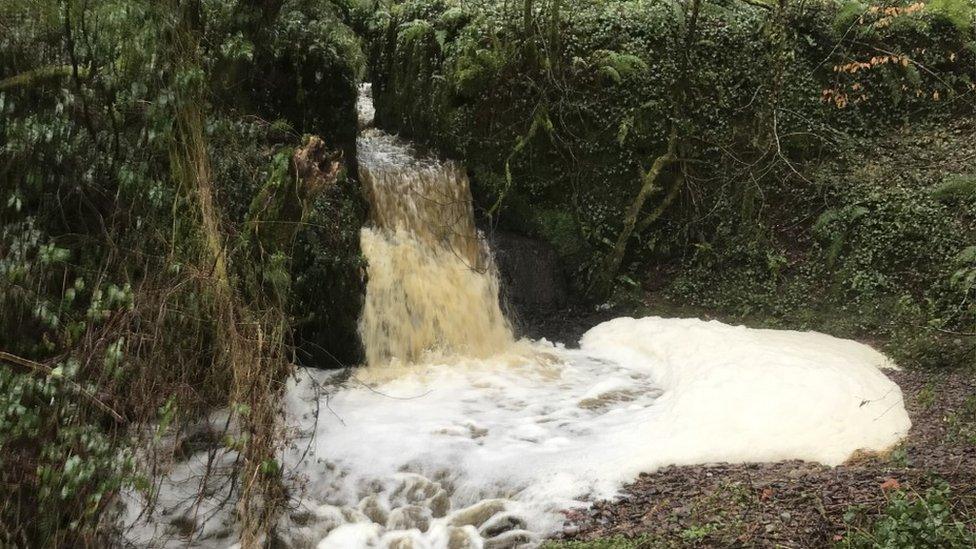
- Published13 January 2022

- Published30 October 2021
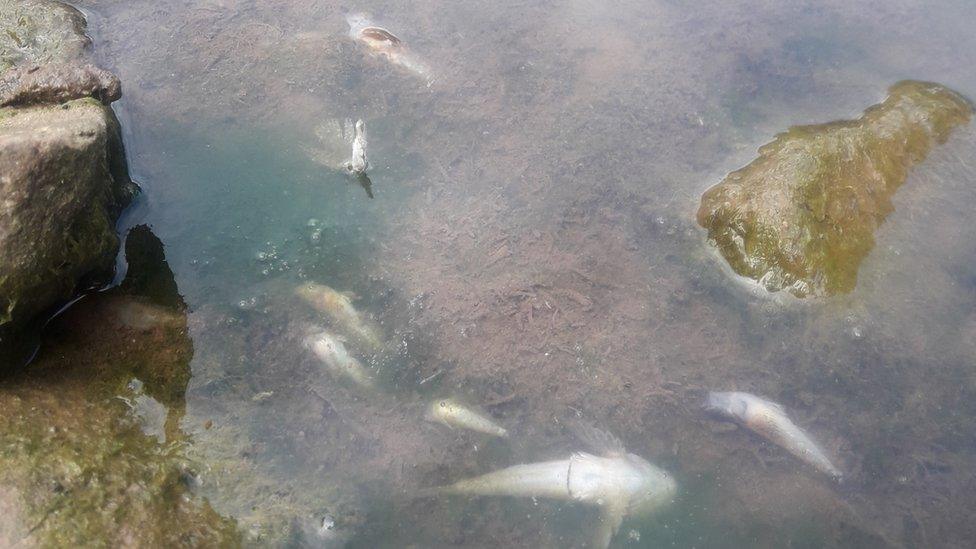
- Published8 August 2021
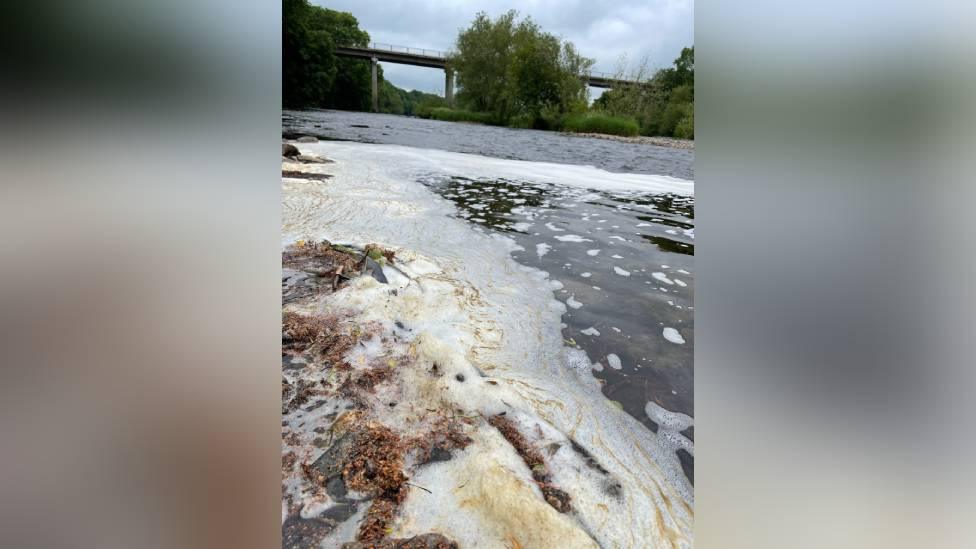
- Published12 April 2021
